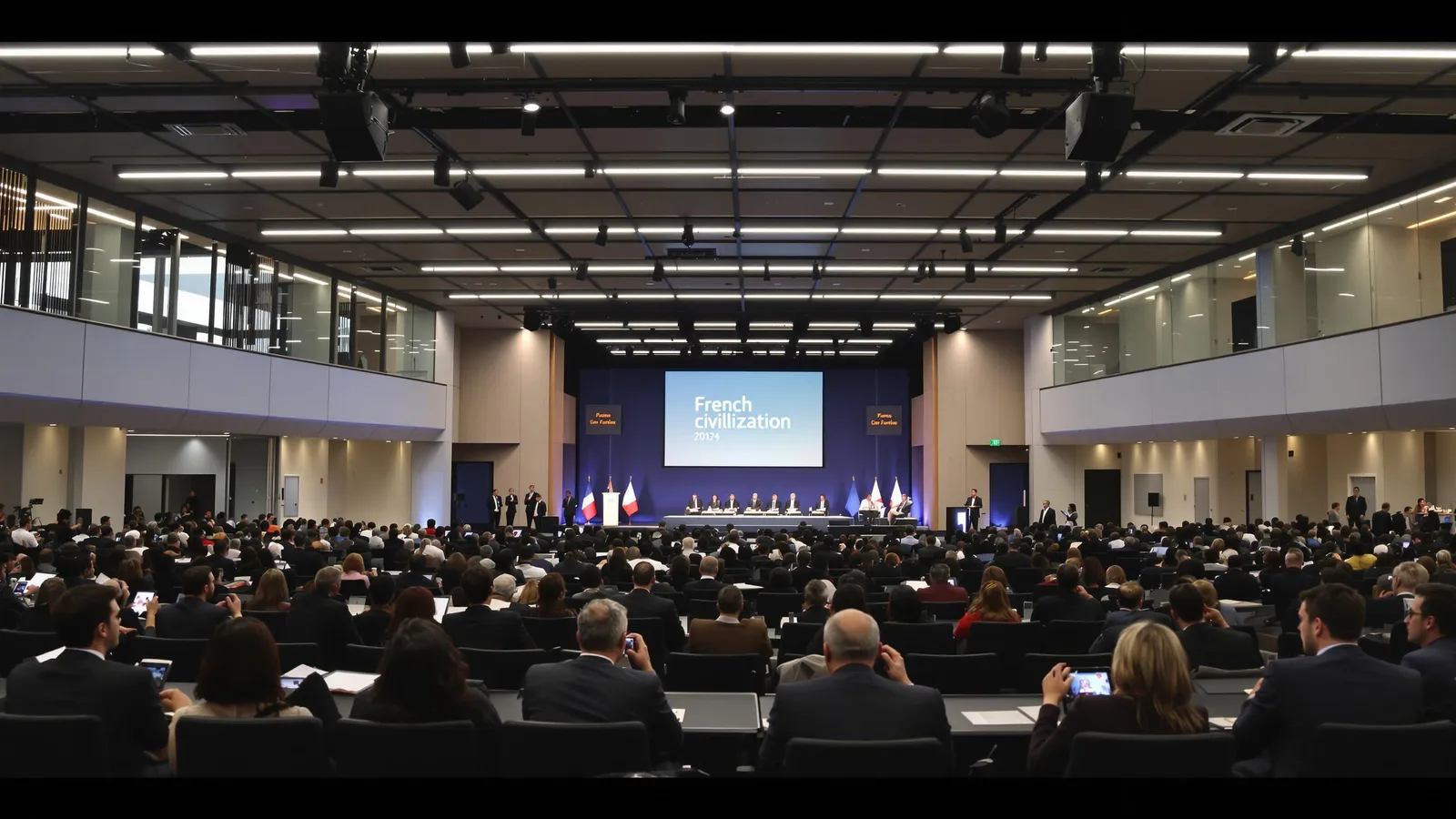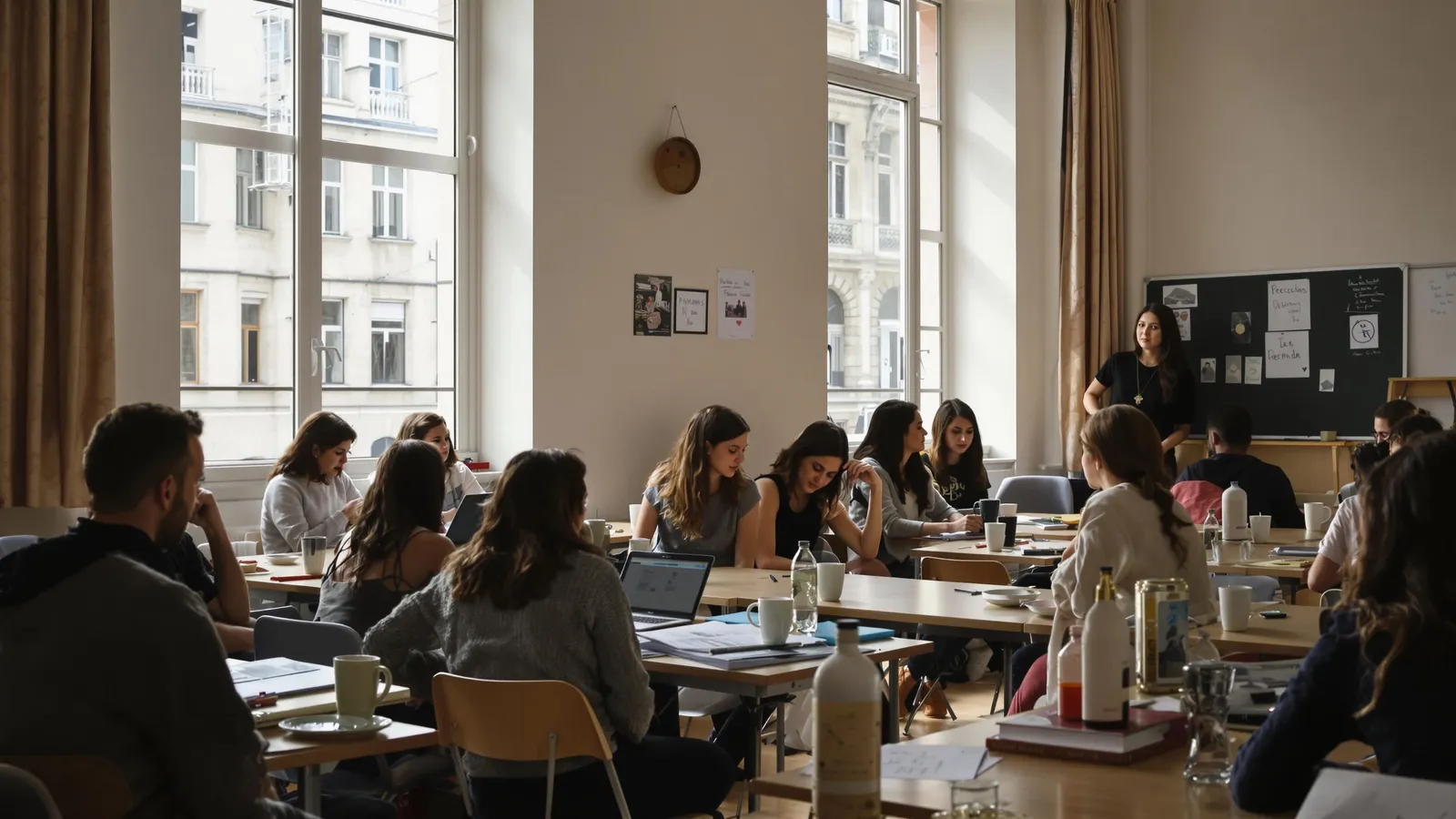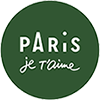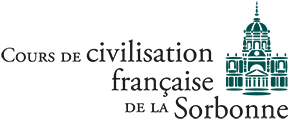Have you ever wondered how many French language proficiency levels exist and how long it takes to master each one? Understanding the CEFR framework is key to measuring your progress, from basic communication to advanced fluency. With six distinct levels—ranging from A1 (beginner) to C2 (mastery)—this system provides clear milestones for learners.
In this article, you’ll discover the time required to achieve each level, practical strategies for progression, and how to align your learning goals with the French language certification path. Whether you’re a beginner or aiming for near-native fluency, we’ll guide you through every step.
Sommaire
- Understanding the CEFR Framework for French Mastery
- From Survival French to Eloquence: Level Breakdown
- Realistic Timelines for Each Proficiency Tier
- Strategic Progression Through CEFR Levels
Understanding the CEFR Framework for French Mastery
What Defines CEFR Language Levels?
The Common European Framework of Reference for Languages (CEFR) is a standardized system used to measure language proficiency across Europe and beyond. It divides language skills into six levels, ranging from A1 (beginner) to C2 (mastery). This framework ensures consistent learning benchmarks and provides a clear pathway for learners to track their progress. For more detailed information, refer to the official CEFR documentation.
Here’s a breakdown of the key characteristics of the CEFR levels:
- Basic Users (A1-A2): At these levels, learners can understand and use simple expressions for everyday situations. A1 focuses on basic introductions and simple questions, while A2 allows for slightly more complex communication, such as describing surroundings.
- Independent Users (B1-B2): These levels signify the ability to handle more complex tasks. B1 learners can discuss familiar topics and express opinions, while B2 users can engage in detailed discussions, draft professional emails, and understand nuanced cultural references.
- Proficient Users (C1-C2): At these advanced levels, learners can understand and produce complex texts, engage in abstract discussions, and express themselves with precision. C2 represents near-native fluency, including the ability to understand subtle nuances and specialized vocabulary.
These levels provide a structured pathway for learners to measure their progress and set achievable goals.
Official Recognition and Applications
The CEFR framework plays a crucial role in academic admissions and professional certifications, providing a globally recognized standard for measuring French language proficiency. For international students, achieving a level B1, B2, or C1 in French is often a prerequisite for enrolling in university programs in France. Similarly, many professions, particularly in fields such as diplomacy, education, and international business, require proof of advanced proficiency, typically at C1 or C2 levels.
To obtain official certification of your French language skills, exams such as DELF and DALF are internationally recognized options. These exams align with the CEFR levels and validate your ability to communicate effectively in French. For more information on these certifications, visit the official DELF/DALF page.
Below is a detailed comparison of CEFR levels, corresponding exams, and estimated study hours:
| CEFR Level | Description | Corresponding Exams | Estimated Study Hours | Key Competencies |
|---|---|---|---|---|
| A1 | Beginner | DELF A1, TCF Level 1 | 90-100 hours | Basic greetings, simple Q&A, everyday phrases |
| A2 | Elementary | DELF A2, TCF Level 2 | 180-200 hours | Describe environments, past/future events, basic conversations |
| B1 | Intermediate | DELF B1, TCF Level 3 | 350-400 hours | Debate opinions, understand main media ideas, travel independently |
| B2 | Upper Intermediate | DELF B2, TCF Level 4 | 500-600 hours | Professional emails, nuanced cultural references, complex discussions |
| C1 | Advanced | DALF C1, TCF Level 5 | 700-800 hours | Understand complex texts, express ideas clearly, specialized vocabulary |
| C2 | Mastery | DALF C2, TCF Level 6 | 1,000-1,200 hours | Understand nuances, draft legal documents, near-native fluency |
From Survival French to Eloquence: Level Breakdown
Foundational Stages (A1-A2)
The foundational levels of French language proficiency, A1 and A2, are designed for beginners who are just starting their journey. At the A1 level, learners can understand and use basic expressions, such as greetings, introductions, and simple questions. Everyday situations like shopping or ordering food become manageable with a limited vocabulary. For example, an A1 learner can ask for directions or describe their family in simple terms.
Progressing to A2 marks a significant step forward. Learners can now describe their environment, discuss past and future events, and engage in basic conversations. At this stage, they can handle routine tasks like shopping, traveling, or making appointments with greater confidence. For more insights into the A2 level, refer to the TCF, DELF, and DALF A2 level details.
Here’s a quick overview of what A1 and A2 learners can achieve:
- A1: Basic greetings, simple questions, and everyday phrases.
- A2: Describing surroundings, discussing past and future events, and handling routine tasks.
These foundational stages provide the essential building blocks for advancing to higher levels of proficiency.
Intermediate Milestones (B1-B2)
Reaching the intermediate levels of French proficiency, B1 and B2, opens doors to more sophisticated communication and professional opportunities. At the B1 level, learners can discuss familiar topics, express their opinions, and understand the main points of clear texts. They can handle most situations encountered while traveling in French-speaking countries, making this level ideal for those seeking greater independence in their language use.
Progressing to B2 signifies a deeper understanding of the language. Learners can engage in detailed discussions, understand complex texts, and write professional emails. They can interact with native speakers with spontaneity and fluency, making this level suitable for both personal and professional contexts. B2 learners also begin to grasp nuanced cultural references and idiomatic expressions, enhancing their ability to communicate effectively in diverse situations.
Here’s a breakdown of the key competencies at B1 and B2:
- B1: Discuss familiar topics, express opinions, and understand main media ideas.
- B2: Engage in detailed discussions, draft professional emails, and understand complex texts.
These milestones mark a significant transition from basic to independent language use, enabling learners to navigate both personal and professional scenarios with confidence.
Realistic Timelines for Each Proficiency Tier
Accelerated Learning vs Casual Study
The time required to achieve each level of French proficiency varies significantly depending on the intensity of study and individual learning conditions. For example, learners enrolled in intensive French courses, which typically involve 20 or more hours of study per week, can progress more quickly. It’s possible to reach B1 in as little as 3 months with consistent effort and immersion. However, for those studying casually, such as a few hours per week, reaching A2 might take around 6 months.
Several factors influence the speed of language acquisition:
- Immersion: Living in a French-speaking environment accelerates learning by providing constant exposure to the language.
- Native Language: Speakers of languages closely related to French, such as Spanish or Italian, may progress faster due to similarities in vocabulary and grammar.
- Age: Younger learners often acquire languages more quickly, though adults can achieve high proficiency with consistent practice.
- Consistency: Regular study and practice are essential for steady progress, regardless of the learning method.
Understanding these factors helps learners set realistic goals and tailor their study plans to their individual needs.
Institutional Roadmaps and Benchmarks
Structured language programs, such as those offered by institutions like the Alliance Française, provide clear roadmaps for progressing through the CEFR levels. Typically, learners can advance one level per 12-week term when following an intensive course. This structured approach ensures steady progress by combining classroom instruction with practical exercises and cultural immersion.
For example, a learner starting at A1 can expect to reach A2 after one term, B1 after two terms, and so on. This pacing is designed to balance the acquisition of new skills with the reinforcement of previously learned material. Supplementing classroom hours with additional practice, such as language exchanges or media consumption, can further enhance progress.
Here’s a summary of the typical progression timeline in structured programs:
- A1 to A2: 12 weeks of intensive study (approximately 90-100 hours).
- A2 to B1: 24 weeks of intensive study (approximately 350-400 hours).
- B1 to B2: 36 weeks of intensive study (approximately 500-600 hours).
These benchmarks provide learners with a clear understanding of the time and effort required to achieve each level of proficiency.
Strategic Progression Through CEFR Levels
Optimizing the A→B Transition
Moving from the basic (A) to the independent (B) levels of French proficiency requires a strategic approach. One key concept is the critical mass theory, which suggests that learners need to acquire a threshold of vocabulary—typically around 1,500 words—to achieve basic fluency. This linguistic tipping point enables learners to transition from simple, formulaic expressions to more spontaneous and varied communication.
To facilitate this leap, immersion tactics are highly effective. Engaging in tandem partnerships, where learners practice with native speakers, can significantly enhance conversational skills. Additionally, consuming French media, such as podcasts, TV shows, and books tailored to intermediate learners, provides exposure to natural language use and cultural context. For example, podcasts like “Coffee Break French” or “InnerFrench” are excellent resources for B1 learners.
Here are some actionable strategies for optimizing the A→B transition:
- Vocabulary Building: Focus on acquiring high-frequency words and phrases relevant to daily life and personal interests.
- Conversation Practice: Regularly engage in language exchanges or conversation groups to build confidence and fluency.
- Media Consumption: Listen to podcasts, watch French TV shows, and read articles or books at an appropriate level.
These methods help learners break through the A2 plateau and achieve the independence required for B1 proficiency.
Mastering Advanced Nuances (C1-C2)
Reaching the advanced levels of French proficiency, C1 and C2, requires mastering complex linguistic and cultural nuances. At the C1 level, learners can understand a wide range of complex texts, express ideas clearly, and engage in detailed discussions on specialized topics. They can use the language flexibly for academic, professional, and social purposes, demonstrating a high degree of fluency and precision.
C2 represents near-native fluency, where learners can understand virtually everything they read or hear, including subtle nuances and wordplay. They can produce precise and coherent texts on highly specialized subjects, such as legal documents or academic papers. This level also requires an advanced command of domain-specific terminology, enabling learners to excel in fields like law, medicine, or literature.
Here’s what sets C1 and C2 learners apart:
- C1 Expertise: Understand complex texts, express ideas clearly, and engage in detailed discussions on specialized topics.
- C2 Mastery: Understand subtle nuances and wordplay, produce precise and coherent texts on highly specialized subjects.
- Specialized Vocabulary: Demonstrate an advanced command of domain-specific terminology, enabling excellence in professional fields.
These levels represent the pinnacle of French language proficiency, equipping learners with the skills to function effectively in any context.
Mastering the French language is a structured journey, guided by the CEFR framework, which defines clear proficiency levels from beginner to mastery. Each stage, from basic communication to advanced fluency, requires dedication and consistent practice, with timelines varying based on effort and immersion.
To progress effectively, focus on tailored learning strategies, such as immersion, regular practice, and structured courses. Whether aiming for conversational ease or professional fluency, the right approach ensures steady advancement.
Your path to French language mastery begins today—embrace the journey and unlock a world of opportunities.


